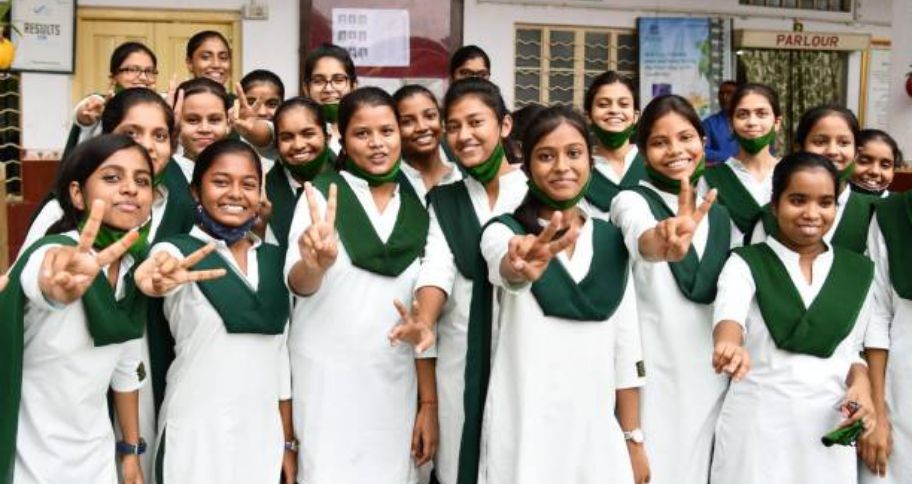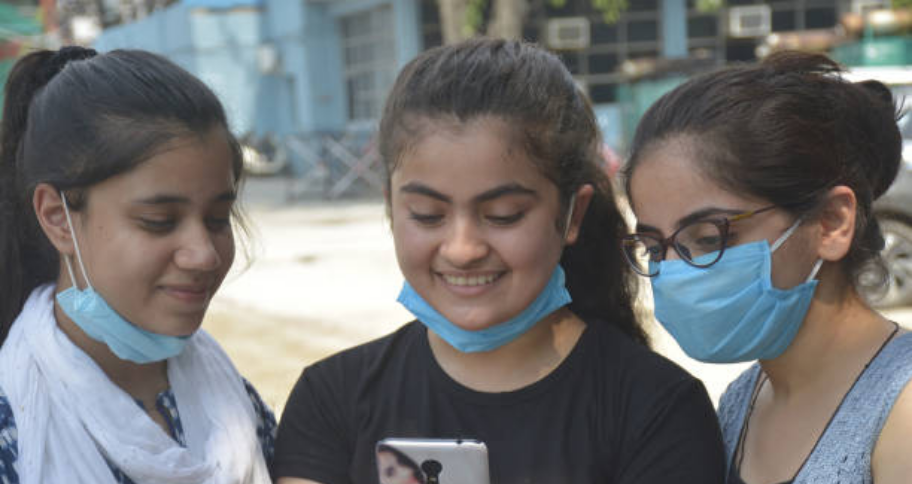How to Choose Appropriate Education Streams After 10th CBSE?
By Pinkey Sharma |
Date 05-02-2024

Table of Contents
Admissions Open for
The CBSE exam for Class 10 is an important stage in children’s lives, determining their future prospects. In a little over a few months from now, the fate of lakhs of CBSE 10th standard students will be sealed as the board exams come to an end. One question that will be on every student’s and parent’s mind: What next? How to choose education streams after 10th CBSE?
As you go on asking this question to yourself and others, you will hear words like take up science. Others would tell you to take up commerce or humanities as their scope has increased immensely over the years and earning potential is better.
However, it’s for you to choose the right streams after 10th CBSE. You must listen to everyone and decide where your interests lie. The days when science or commerce was considered as the ultimate career path are long over. People with engineering backgrounds today work as artists and journalists, students with B.Com degrees have started start-ups, and those with a degree in arts/humanities are in the government or are doing business.
However, if you are still confused with how to choose streams after 10th CBSE, then you are not alone, thousands and thousands of students like you face the dilemma of what to do after 10th standard. Nevertheless, this blog will clear your conundrum by breaking down the scope of each stream to help you decide the best career path.
How to Choose the Right streams after 10th CBSE?

With respect to future possibilities, the CBSE exam for class 10 remains in high regard. Firstly, make a list of your strengths, weaknesses, and interests in a book. Now compare your strengths and interests with the streams that match your skills. Get all the knowledge about the stream and career choices available in that stream. Mix and match the choices with your skills until you boil down to a few that you think are right for you.
Unlike western countries where students have the freedom to choose streams after 10th CBSE, the problem in our country is students follow the crowd: follow what their friends in choosing a stream or get influenced by parents or elders in the family. While this was okay back in the day, it makes no sense today as students have thousands of career options to choose from. So, if you are taking a stream just because your friend did so or to please your parents, then you are not going to enjoy your professional life. Remember, your friends’ career interests are different from yours and what suits them will not necessarily suit you.
Think twice before you shortlist streams after 10th CBSE. Ask yourself questions like is this the right path for you? Will this career keep you satisfied? Are you in it for the long haul? Is this where you want to make a career? Will this career be monetarily rewarding? When the answers fall in the positive, then you have chosen the right path.
In order to choose the right career path, pick the right streams after 10th CBSE that matches your interests, skills, and abilities.
Major Streams After 10th CBSE

There are three major streams that you can choose after class 10th: Arts/Humanities, Commerce, and Science. There are others too but more about them later. The top three streams have been classified based on the top subjects and the career options they offer. For example, when you take up arts/humanities, you can specialise in languages, sociology, psychology, economics, history, political science, and others like geography. If you take science as your specialisation at the +2 level, you can specialise in mathematics, chemistry, biology, physics, or computer science. Finally, there’s the evergreen commerce that has seen a revival of sorts. Commerce specialisations include accountancy, statistics, economics, business studies, and others. Commerce is mostly related to business, trade, the financial sector, and industry.
Let’s now break down the scope and career prospects of the streams after 10th CBSE.
SCIENCE
Science is often preferred by students that want to get a professional degree after 12th standard/+2/pre-degree. The main subjects in +2 science are physics, chemistry, mathematics, biology, computer science and/or electronics. Besides studying the core subjects, you will be doing a lot of lab activities.
With a background in science, you can pursue a career in medical, dental, engineering, pharmaceuticals, nursing, and architecture. For example, if you want to study medicine/dental/nursing/pharmaceuticals, you will have to study physics, chemistry, maths, and biology. If you want a career in engineering or architecture, you have to replace biology with either computer science or electronics. There are other career options that you can choose apart from the ones mentioned above and these include researching, teaching or writing. For that, you’ll have to choose your options right. Now is the right time to decide your future career path. Few of the graduation options that you can pursue after science are B.Sc., B.E./B.Tech, MBBS, BDS, B.Arch, B.Sc. Nursing, B.Pharm, BCA, and others.
COMMERCE

The days when a commerce graduate could only get into business or accountancy are long gone. The scope of commerce is much more widespread now and includes fields as diverse as banking, finance, trade, stock trading, investments, and more. You must take up commerce if you have strong analytical abilities.
The main subjects in commerce are economics, accountancy, finance, business studies, mathematics, and statistics. Some colleges might offer computer science as one of the major options.
A few of the major graduate programmes after commerce at +2 levels are B.Com, BBA/BBM, and BMS. Some colleges also offer 5-year integrated law courses like B.Com LLB or BBA LLB and if your law is your passion, you must consider studying commerce at +2 levels.
ARTS/HUMANITIES
Unlike commerce and science, arts/humanities have the widest scope for students today. Some of the main subjects in arts are history, economics, psychology, political science, sociology, and more.
The career prospects in the humanities stream are immense—you can get into the government, study law, become an artist and lots more.
For all the programmes, language classes are important. English is one of the compulsory languages that one has to study in +12 either as a first or second language.
Other Major Streams After 10th CBSE: Polytechnic/Paramedical Courses

There are other courses that you can pursue after the completion of your 10th standard. These are often known as vocational or polytechnic courses and are meant to make 10th standard students job-ready by skilling them in particular trade in just 2 or 3 years. Depending on which state you live in, vocational and technical courses words can be used interchangeably and some states use the words to distinguish one course from the other.
These programmes have two components: Industrial Training Institutes (ITIs) and Diplomas. ITIs offer certificate courses whereas diplomas, offered by polytechnics and most engineering colleges, are the closest one can get to engineering. Almost all diploma programmes, except for a few, are for three years while ITI courses are for two years.
Most Indian universities allow engineering diploma holders to take lateral entry into 2nd year of engineering programmes while that is not the case with ITIs.
A list of polytechnic courses you can take up after 10th standard:
Diploma in (3 years)
- Mechanical Engineering
- Computer Science
- Civil
- Electrical and Electronic Engineering (EEE)
- Information Technology (IT)
- Automobile
- Electronics and Communication Engineering (ECE)
- Biotechnology
- Electrical
- Chemical
- Aeronautical
- Agriculture
- Architecture
- Biomedical
- Marine Technology
- Mining Technology
- Leather Technology
- Textile Technology
- Petroleum Technology
- Plastic Technology
- Rubber Technology
Most engineering colleges offer all or some of these programmes apart from the regular B.E./B.Tech. programmes. Some colleges may have an entrance test followed by an interview and some may have direct admission which will be done on a first-serve-first-come basis. Please check with the local engineering college or a polytechnic for the exact admission details.
ITI (2 Years)
- Fitter
- Computer Operator
- Civil (Draughtsman)
- Mechanical ( TV & Radio, Motor Vehicle, Diesel, Marine)
- Electrician
- Plumber
- Surveyor
- Machine Tool
- Fireman
- Welder
- Cookery
- Paint Technology
There are other short-term (6 months) courses that you can do after completing your 10th standard.
These are:
- DTP
- Tally
- Animation
- Graphics
- Web Designing
- Cyber Security
Conclusion

Choosing the right streams after the 10th CBSE is important for a lifetime of happiness. Trends are changing and what was true 10 years ago might not hold any water now. Consider this: Medical and engineering are no longer amongst the most satisfying career options today. Today chartered accountants are amongst the highest paid people, sometimes more than doctors and engineers. Then are lawyers that specialise in patents or corporate matters who earn six-digit salaries year after year. There are even coaching centre owners who earn in crores each year just by teaching IIT/IIM aspirants. In short, there’s a lot one can do in any field as the businesses have started accepting graduates of all streams. However, it all boils down to what you choose to do and where your interests lie.
However, before you take a call on what’s right, you must analyse the educational and career prospects of each stream and choose the stream that suits your interests better.
If you have any comments, questions or feedback, please write to us in the space given below and we will be happy to answer them.
Also Read
National vs International School: Which Is Best Suited For Your Kid? A guide to help parents decide the best educational environment for their child's unique needs.
How To Choose The Best Schools In Bangalore? Tips for selecting the top schools in Bangalore based on key factors like curriculum, facilities, and reputation.
Coed Schools Versus Gender-Specific Schools: Which Is Best for Your Child? A comparison of coed and single-gender schools to help you choose the ideal learning environment for your child.
Other Related Sections
NCERT Solutions | Sample Papers | CBSE SYLLABUS| Calculators | Converters | Stories For Kids | Poems for kids | Practice Worksheets | Formulas I Parent Resources
CBSE Schools In Popular Cities
- CBSE Schools in Bangalore
- CBSE Schools in Mumbai
- CBSE Schools in Pune
- CBSE Schools in Hyderabad
- CBSE Schools in Chennai
- CBSE Schools in Gurgaon
- CBSE Schools in Kolkata
- CBSE Schools in Indore
- CBSE Schools in Sonipat
- CBSE Schools in Delhi
- CBSE Schools in Rohtak
- CBSE Schools in Bhopal
- CBSE Schools in Aurangabad
- CBSE Schools in Jabalpur
- CBSE Schools in Jaipur
- CBSE Schools in Jodhpur
- CBSE Schools in Nagpur
- CBSE Schools in Ahmednagar
- CBSE School In Tumkur

Call Us to know more about Orchids
Swipe Up

















